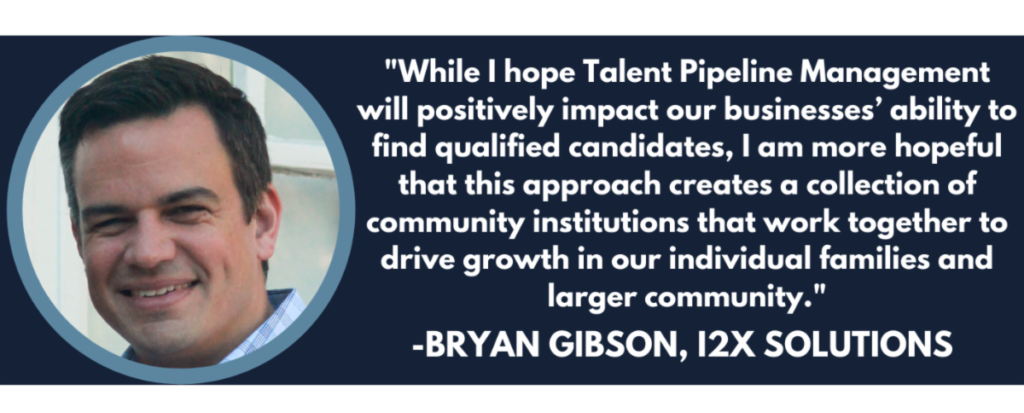The demands of today’s economy require a strategic alignment between classroom and career that better supports students in their transition to the workforce. The Greater Tallahassee Chamber of Commerce began work on these alignments recently through an established national program called Talent Pipeline Management (TPM).
We sat down with Corrie Melton, Vice President of Membership & Talent Development to answer a few questions regarding TPM and explain how this program will help our community keep pace with the changing needs of the economy, assist employers with their talent strategies and adequately prepare job seekers through external pipelines.
Here’s what she had to say:
What is Talent Pipeline Management?
Talent Pipeline Management is a movement started by the US Chamber of Commerce Foundation in 2014. Based on the principles of supply chain management, TPM puts the employers in the driver’s seat of determining their critical positions and articulating the demand as well as the credentialing requirements for these positions so they may co-create a talent pipeline with our local education and training providers.
TPM is now in 33 states and Canada with hundreds of active employer collaboratives involving thousands of employers.
How did you first learn about TPM and what was intriguing about the concept for our community?
In 2019, our Chamber elevated talent development to one of its three strategic priorities. It was important to the Chamber to understand the talent landscape before we began to step into the space others created and work hard every day. During this period of research, we leaned heavily on the Florida Chamber of Commerce Foundation and their leadership role in the statewide talent development initiatives. Their Employability Skills Framework caught my attention as it directly addresses the need for strategies that are demand-driven and industry-led. The US Chamber of Commerce Foundation’s TPM program was highlighted in this document as a tool for meeting this need.
Employers working together with education and workforce partners is not a new idea. What intrigued me about TPM, however, was that it has a very structured process with an underlying platform to support the data gathering and analysis to drive the work. As an organization representing over 1200 businesses, it was important that the TPM process builds in ROI for the employer as one of the outcomes.
What are the benefits of TPM?
These are not only benefits but also differentiators for TPM:
- Built on industry best practices
- Authentically employer-led
- Generates granular, actionable data on employer demand
- Provides a structured process for collective action and decision making
- Engages the full spectrum of talent sourcing providers
- Creates shared value, competitiveness, and accountability
- Focused on employer ROI

How do you apply successful Talent Pipeline Management (TPM) strategies to build internal pipelines and upskill an existing workforce?
Our employer collaboratives will spend the next four to five months assessing shared pain points in terms of talent, projecting need over the next two to three years, building a consensus on competency and credentialing requirements, and analyzing their current talent flows. With this information in hand, the collaborative will work with our talent providers and workforce partners to create a talent pipeline fulfilling the needs projected at the beginning of the process. The core strategies are the same whether the need is for hiring new employees or upskilling existing workers. TPM is a cradle to career model, acknowledging all the partners needed along the career path.
What industries are you starting with here in our community?
Our first employer collaborative met September 10. This group included 16 technology companies, as well as companies who may not consider themselves to be a tech company but may have a large tech team internally. Healthcare is lined up to be our second collaborative, with plans to begin in November. TPM covers every industry from technology to hospitality to equine. The strategies are the same, the players are different.
To learn more about the Chamber’s Talent2030 initiative visit www.talchamber.com/talent2030 or email Corrie Melton at cmelton@talchamber.com.

